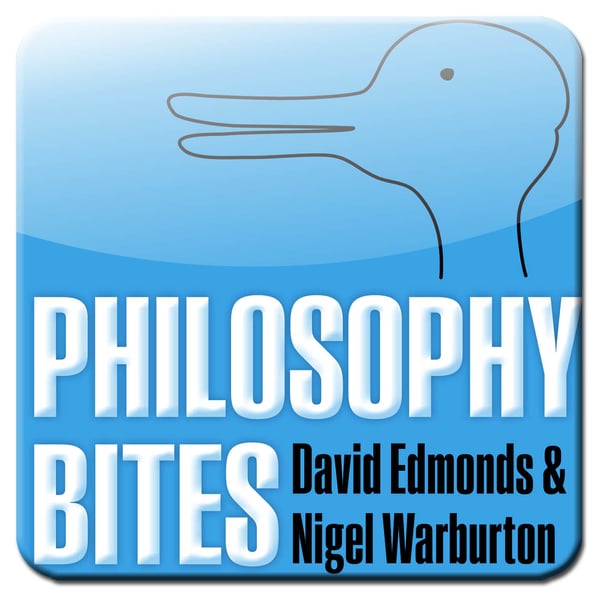Hugh Mellor on Probability
Philosophy Bites
Nigel Warburton
4.6 • 2K Ratings
🗓️ 7 December 2014
⏱️ 14 minutes
🧾️ Download transcript
Summary
What is probability? Not an easy question to answer. We thought our best chance of clarity on this question was from Emeritus Professor of Philosophy at Cambridge University and author of a book on the subject, Hugh Mellor...
Transcript
Click on a timestamp to play from that location
| 0:00.0 | This is |
| 0:03.2 | This is Philosophy Bites with me Nigel Warburton and me David Edmonds |
| 0:09.7 | Philosophy Bites is unfunded. Please help us keep it going by subscribing or donating at |
| 0:15.0 | W.w.w.com |
| 0:18.4 | or you can become a patron at Patreon. |
| 0:21.4 | If you throw two dice, the probability of a double six is one in 36. That sounds |
| 0:27.2 | straightforward. But what do we mean by probability? Is chance something which is out there in the world? |
| 0:34.0 | Or, by using the concept of probability, are we merely expressing our ignorance of the future? |
| 0:40.0 | Might a brilliant physicist be able to use the angle and speed at which the dice are thrown |
| 0:44.8 | to calculate what numbers they'll land on? Probability is a notoriously naughty idea to grasp. |
| 0:51.4 | So here to help us untangle it is Hugh Mela. |
| 0:54.0 | Hugh Mela. Welcome to Philosophy Bites. |
| 0:57.0 | Thank you very much. |
| 0:58.0 | The topic we're going to focus on is probability. |
| 1:02.0 | So what is probability? There are three things that are called |
| 1:06.1 | probability. There's a mathematical structure which uses numbers between |
| 1:11.4 | naught and one to measure things, |
| 1:13.5 | and then there are other things that those numbers are used to measure. |
| 1:17.0 | One of them is physical probability, the sort of thing that occurs in physics when you measure the probability of radium atoms |
| 1:26.7 | decaying or of a tossed coin landing heads or in epidemiology what is your probability of catching a disease when you're exposed |
| 1:37.4 | to population of people who have it. That's one kind of application of the |
| 1:42.0 | mathematical theory to something within physics or within science generally or just in everyday life. |
... |
Please login to see the full transcript.
Disclaimer: The podcast and artwork embedded on this page are from Nigel Warburton, and are the property of its owner and not affiliated with or endorsed by Tapesearch.
Generated transcripts are the property of Nigel Warburton and are distributed freely under the Fair Use doctrine. Transcripts generated by Tapesearch are not guaranteed to be accurate.
Copyright © Tapesearch 2025.

